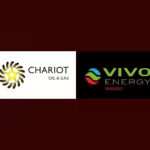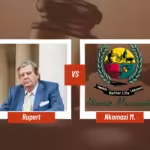Ben La Grange, the former chief financial officer of the defunct South African retail giant Steinhoff International Holdings NV, appeared in the Pretoria Specialised Commercial Crimes Court on Wednesday, June 26, three months after the death of his ex-boss Marcus Jooste. La Grange had been arrested earlier that day. He was granted bail set at R150,000 ($8,214).
The 49-year-old is being charged with two counts of racketeering, five counts of fraud, one count of corruption, and three counts of contravening the Financial Markets Act. These charges are part of the state’s investigation of Steinhoff’s 2017 financial scandal, which ultimately resulted in the company’s collapse.
La Grange appeared alongside Stephan Grobler, Steinhoff’s former head of legal affairs. Grobler presented himself to the authorities in March. The former legal head was also granted bail of R150,000 ($8,214).
Notably, Grobler was set to stand trial with Steinhoff’s former CEO Markus Jooste who allegedly took his only life in March after learning of the arrest warrants issued against him. The duo were the primary suspects in the Steinhoff case.
The Steinhoff scandal
The Steinhoff group scandal sent shockwaves across South Africa and Europe. In December 2017, the company revealed accounting irregularities in its books. The revelations resulted in a dramatic over 95% share price drop, with investors and pensioners losing millions.
One such investor was South Africa tycoon Christo Wiese who lost more than half his fortune in the scandal. The billionaire had a huge stake in the company and when the share price plummeted he suffered a huge loss. For context, in 2015, Wiese was worth $7.2 billion according to Forbes and by the beginning of 2018, his net worth had plummeted to $300 million. The drop was so fast and so unprecedented that even Forbes thought it was a computer error.
“This is the biggest and fastest drop we have ever seen in the real-time net worth of any individual on the Forbes rich list,” Kerry Dolan, the then head of the Forbes wealth unit in New York said after checking and finding no error in the numbers.
Two years after the revelations an independent report by accountants PwC found that the firm led by a few executives recorded fictitious or irregular transactions totalling $7.4 billion from 2009 to 2017.
Jooste resigned as CEO but denied any knowledge of accounting fraud. He was later fined for insider trading in 2020.
Investigations were launched into the case and in 2022 La Grange was fined R2 million (about $109,000) by South Africa’s main stock exchange for his role in generating a $25.1 million invoice based on a document from Jooste which directed him to produce said invoice.
While the Johannesburg Stock Exchange (JSE) noted that La Grange was unaware that the income was false, it stated that he failed to do his due diligence and as such was equally at fault.
Debt restructuring
Steinhoff has faced significant losses and a myriad of lawsuits since revealing the extensive accounting irregularities. The retail group which holds a substantial stake in South African discount retailer Pepkor is now a shell of its former self.
To avoid bankruptcy and a messy and prolonged liquidation, Steinhoff implemented a debt restructuring plan in 2023.
Steinhoff’s assets, liabilities, and contracts were transferred to a new unlisted company called Ibex. The Steinhoff name ceased to exist as a company following the liquidation. Shareholders were allowed to retain rights to 20% of the new entity and the repayment date of the company’s $10.9 billion debt burden was extended to 2026.
In March 2024, before Jooste’s death, the former CEO was fined R475 million ($25.15 million) by the Financial Sector Conduct Authority (FSCA) for making or publishing false, misleading, or deceptive statements about Steinhoff.
“The Steinhoff International securities were listed on the Johannesburg Stock Exchange and the Frankfurt Stock Exchange during this period. Section 81(1)(a) of the FMA prohibits a person from, directly or indirectly, making or publishing any false or misleading or deceptive statement,” the FSCA said.
The authority noted that the fine was the largest it had ever imposed on an individual.
Jooste was expected to pay the sizeable sum before or on April 19 or appeal the FCSA’s decision before then. Unfortunately, a day after he was ordered to pay the fine, Jooste died. Local media reported that the ex-CEO succumbed to a gunshot wound (allegedly self-inflicted) in hospital.
Jooste had reportedly been informed of arrest warrants out against him shortly before his death.






